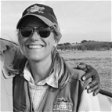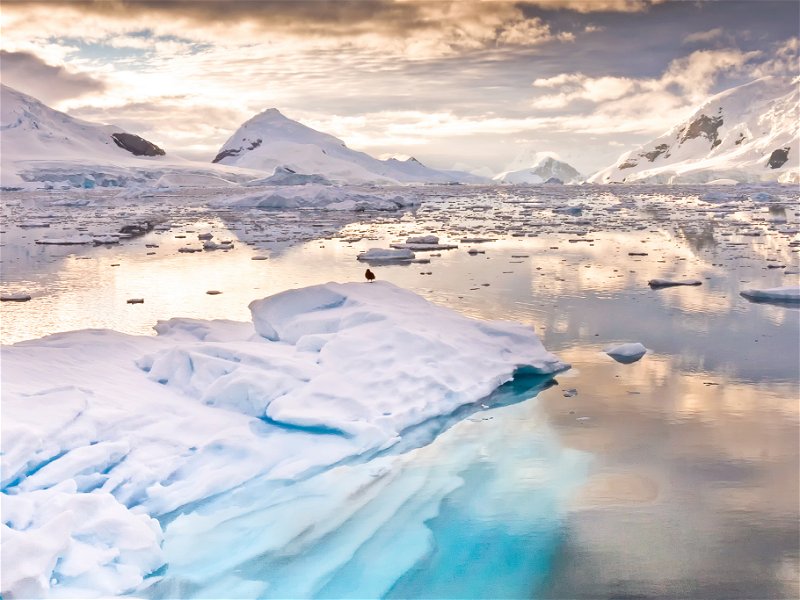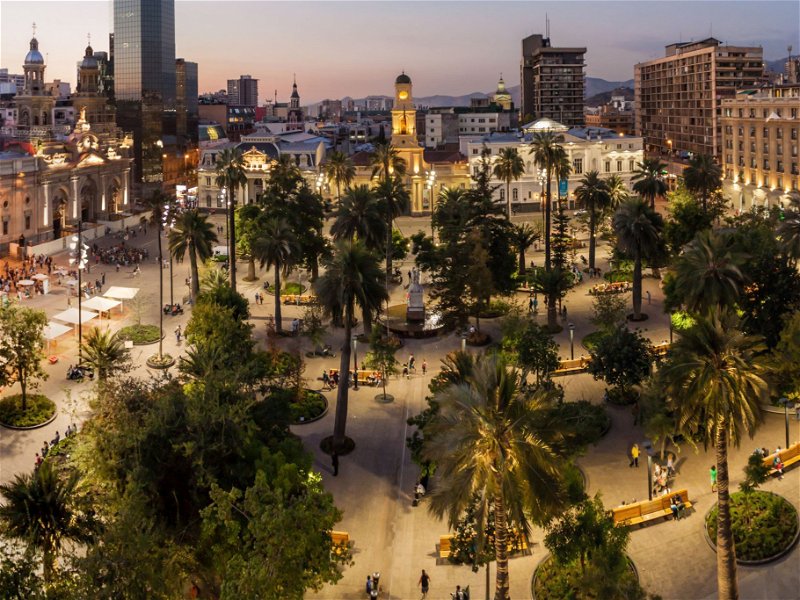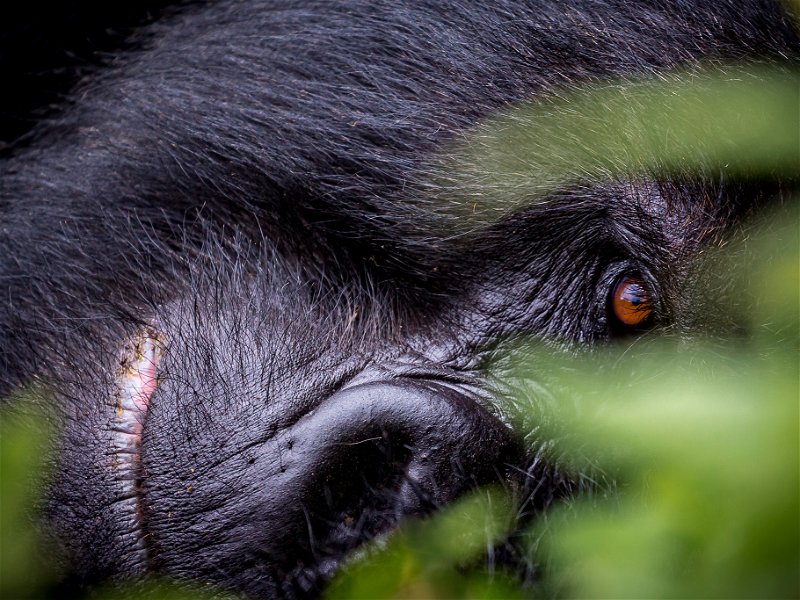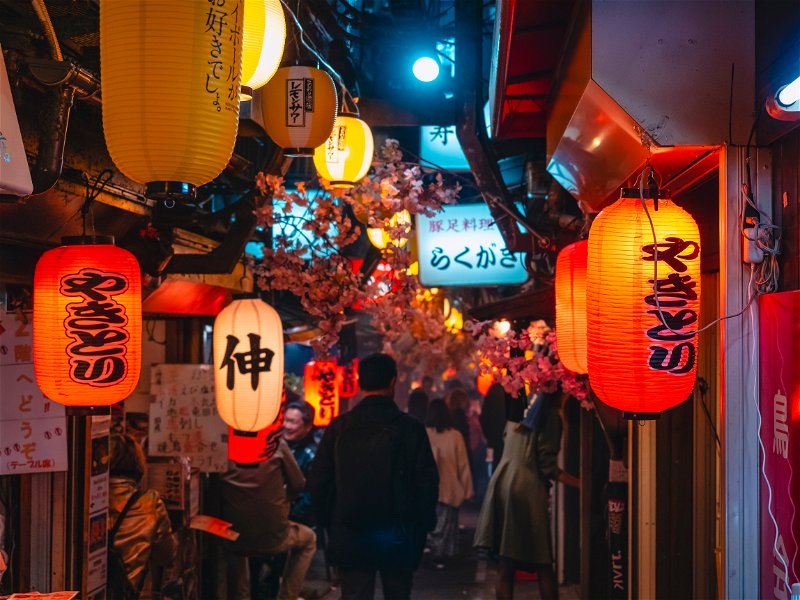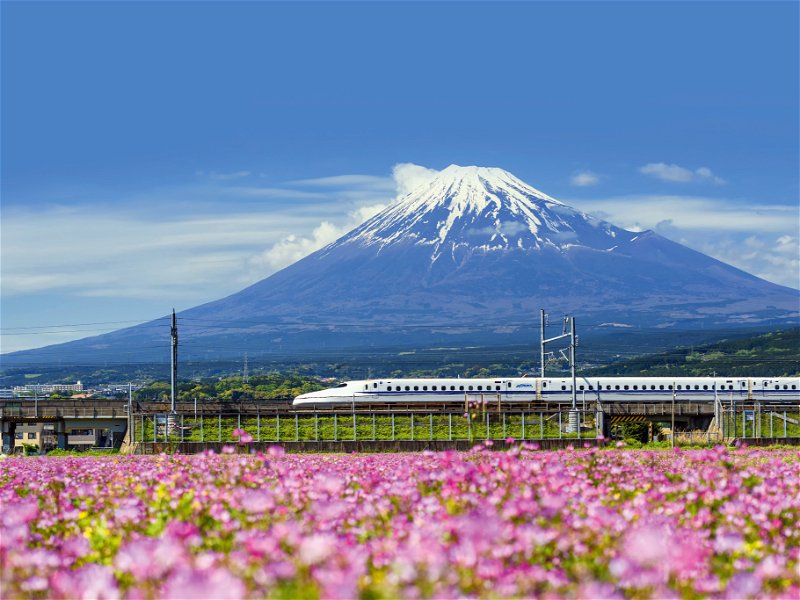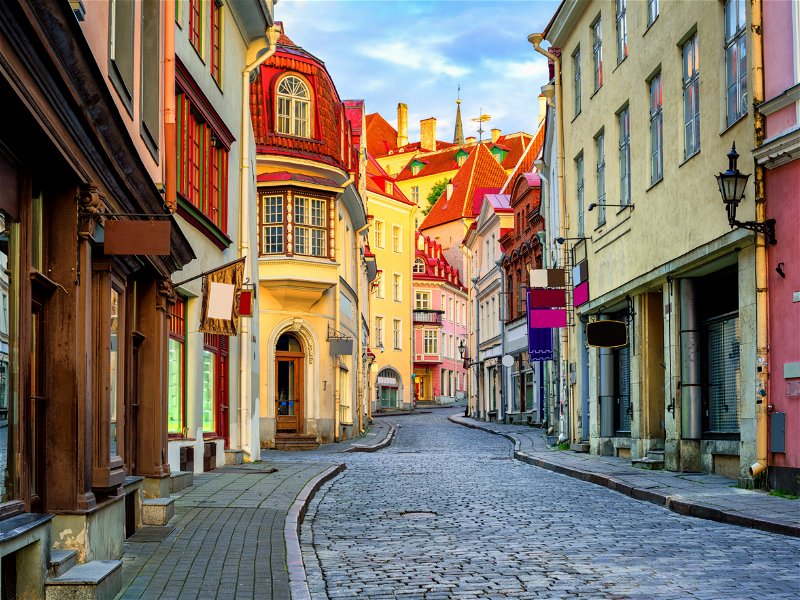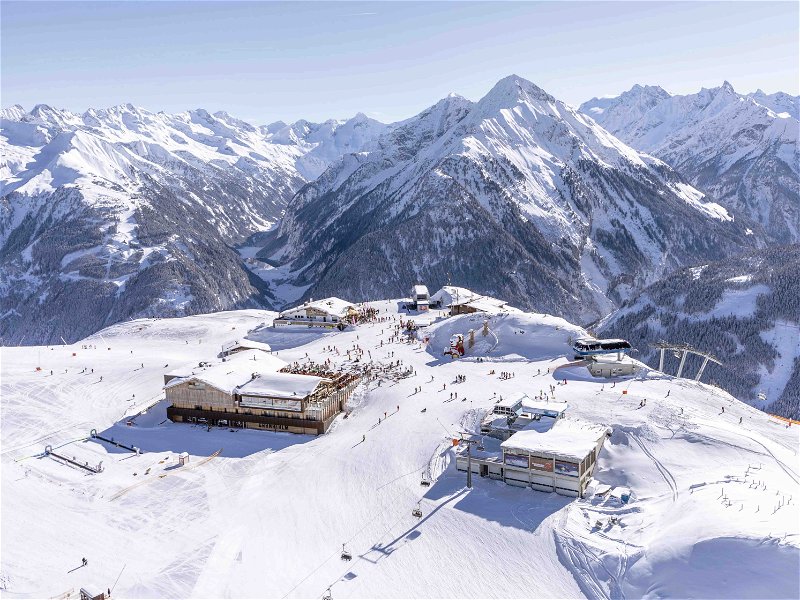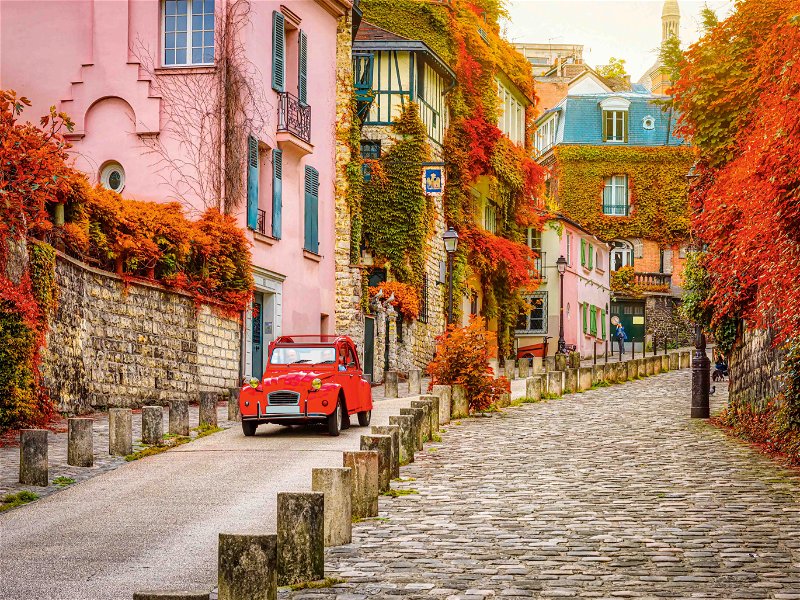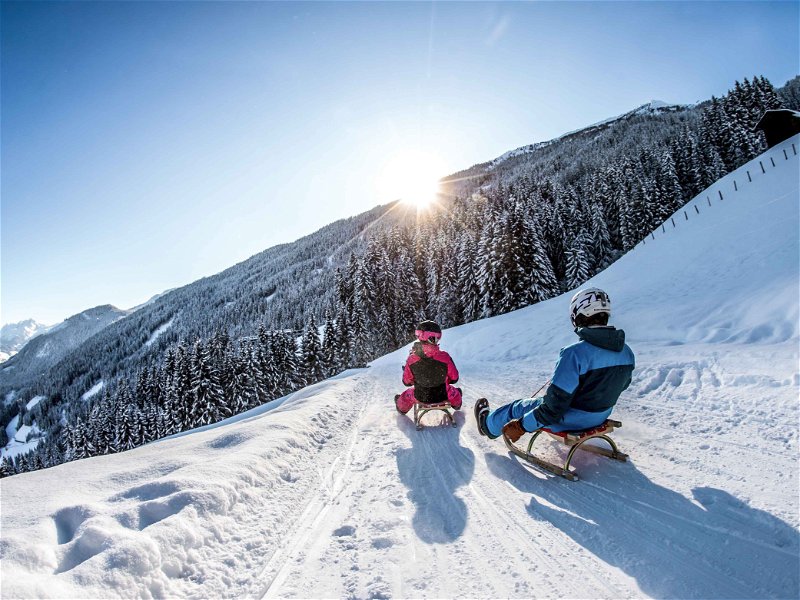Adventures On Thin Ice: Notes on a Mother Daughter Trip to Antarctica
An Antarctic cruise is perfect for intergenerational travel — it’s inherently bonding and far more serene than one would imagine.
“Some say that maybe Ushuaia isn’t the end of the world, but the beginning of everything.”
I was in the southernmost city in South America, heading to the dock that would transport me, by sea, to the seventh continent. The Argentinian guide had been giving an overview of life in this Patagonian city, my mother and I looking eagerly and anxiously out the window at the snow-capped Andes. This would be our last moment in civilization before we were to depart for 15 days at sea, sharing a cabin and two twin beds as we sailed south to Antarctica.
That would be a lot of togetherness for any pair, but for a mother-daughter trip, it felt especially momentous — we would reach our seventh continent together.
Antarctica had been my dream for as many years as I can remember, and it had been my mother’s since decades before I was born — and is probably why it was top of my bucket list too. It’s hard to say whether I’d have become a travel writer if not for my mother. She took me on my first press trip as her plus-one in Hawaii at the age of 13. We saw humpback whales, I lounged by the pool while my mother attended newspaper conferences and traded war stories with fellow reporters. Decades later, the roles were reversed. I was here for work, and she was my lucky plus one. We’d swapped the tropics for the Antarctic, but the humpback whales remained the same.
When I first signed on for the Antarctic Explorer expedition aboard the Viking Polaris, there was no doubt in my mind about who I would bring as my guest. She cried upon receiving the news — and later, upon seeing the icy continent for the very first time. It’s rare to be able to give someone such a powerful gift, and if you have the opportunity, may I say: Always bring your mother.
Not only had I secured myself for at least a while as the favorite child (and as one of four, it’s stiff competition), but I got to experience my mother as a human and as a friend.
The Call of the Wild
That first day, we set out across the Drake Passage, waving goodbye to the last glimmer of land before embarking upon the infinite expanse of the Southern Ocean.
“When the passage is rough, it’s the “Drake Shake,” and when it’s mild, it’s the “Drake Lake,” a local guide informed us that morning, reminding us of the inherent risks of this dangerous part of the ocean — the deep, restless waterway where the Atlantic meets the Pacific: “Any passage is a good passage.”
On our way down, we were lucky — only about 20-foot swells. My mother and I opted to forgo the Dramamine patches and felt utterly fine. Our first mission — to avoid getting seasick in such a cramped environment next to one another — was seamlessly completed. It was the first, of many times, on that trip that I realized quite how tough my mother was and always has been.
The sun never sets during summertime in Antarctica, so my mother and I stayed up late, drinking cocktails at the Explorers Bar. She befriended my fellow colleagues and — despite being a generation older than her comrades — seamlessly blended into the social atmosphere. In fact, she dominated it: If she ever bowed out of an activity, old friends and new acquaintances alike expressed their desire for ”Liz” to join us. My plus one, it seems, was a value add.
“The journey, not the arrival, matters,” wrote the poet Thomas Stearns Eliot. And, of course, the arrival in Antarctica is nothing short of spectacular — the closer you get to the magnificent blue waters of the Southern Ocean, the more spectacular the Antarctic hues of the water become. We were touring the boat that next morning when the first iceberg floated by outside our ship. We headed out to the starboard bow to witness its beauty, in awe of where we were — and how few people had ever seen what we were seeing or ever would. We were in the least explored, the most remote, and the most untamable and unforgivingly wild part of planet Earth. Of course, it is that mystery that appeals to so many.
And that call of the wild has, of course, always spoken to my mother. I’ve always been impressed by her curiosity, her love of the unknown, and her adventurousness. The next day, we listened to a lecturer speak about the UK Antarctic Heritage Trust.
“I would have done that in my thirties, I wish I’d signed up for a polar mission or lived here for part of my life,” she told me. “I am too old to do that now.”
Her wistfulness struck me — not that our parents aren’t people and don’t have regrets. But she’d visited 80 countries, written meaningful stories as a journalist, and also she’d built a family and a home. Here I was, traveling the world every week to a new country, and the only family I had was the one I’d been born into, not one I’d created.
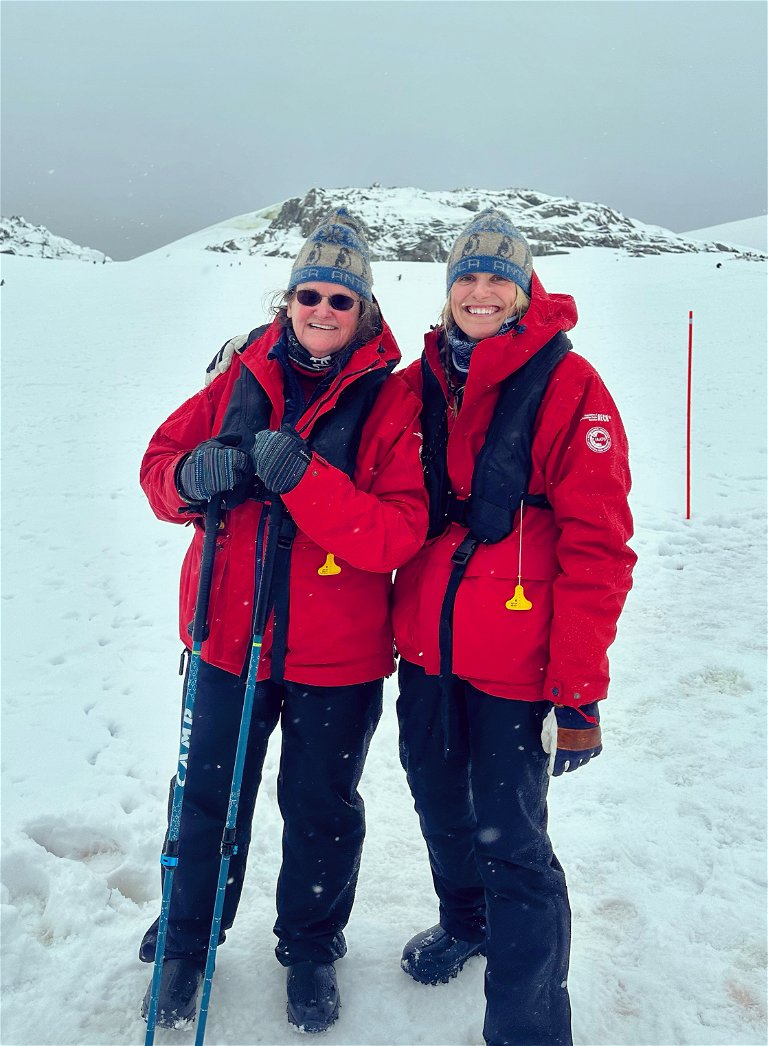
But I was only just beginning to realize how much the family I’d been born into had shaped and defined me. Not to say I didn’t always love my mother, but I didn’t always identify with her. And, predictably, I rebelled against her — only, of course, to turn into her in the end.
The Sounds of Silence
On the third day of our trip, we finally touched down on the seventh continent. We took a Zodiac boat across the water to Petermann Island, where together we set foot, finally, in Antarctica. The magic incandescence of the fields of snow, the luxuriating laziness of the Weddell seals, the busy fearlessness of the Gentoo penguins — everything felt like a dream.
“Penguin highways can be subtle and are easily missed underfoot,” our guide had warned us.
Nevertheless, I was still shocked to see the penguins marching right toward us along the trail, unafraid of our presence. It reminded me of the Galapagos Islands but on a much larger (frostier) level. Here, in Antarctica, we truly were visitors, intruders. Humans had never colonized this land, but the Adelie penguins certainly had.
We were strangers in a strange land. And even the landscape was utterly otherworldly. I never imagined there would be so many different shades of blue and white, and when the sun shone in Antarctica, it looked like heaven on Earth.
Returning to our cabin, I took inspiration from this surrounding, enveloping solitude — this magnificent sense of worldliness and serenity — and curated the only appropriate soundtrack: Simon & Garfunkel, of course, the very arbiters of the sounds of silence. Sitting in our cabin, journaling the day’s events, or sipping red wine and looking out the window, my playlist was forever apt.
“I get the news I need from the weather report” — very true in Antarctica, when the most important news of the day was delivered morning and evening by our Viking expedition leader, advising on the shifting itinerary for the next day based on unexpected icebergs, hail storms, or rough waters. (In Antarctica, always expect the unexpected).
“I touch no one and no one touches me, I am a rock, I am an island” felt like the rallying cry for Antarctica itself. And were we not “silver girls, sailing on by?”
After the fifth day — and 25th hour of listening time — my mother, understandably, had suffered enough. “You’re waterboarding me with my own music!”
Few experiences are as bonding and as memorable as an Antarctic cruise — you spend endless hours onboard, playing cards or drinking Baileys, or walking laps around the deck, and then frenetic, exhilarating hours bundled up beneath layers of Goretex to brave the ice storms and Arctic wind as it whips your Zodiac boat as you head towards shore.
I’d venture to say that an Antarctic cruise is perfect for intergenerational travel — it’s inherently bonding and far more serene than one would imagine. Each day, you pick your adventure — whether you set out for the continent or cruise upon the Southern Ocean is entirely optional.
Antarctic Explorers
The expedition was ideal for our travel schedules and desires — the rigorousness of daily outings is offset by the idling hours of lounging and relaxing in the evening. My mother never complained, not once. If it was cold, she didn’t mention it. If she was tired of standing in line for hours at age 70, she didn’t say a word. And, when she had the opportunity to participate, to explore, she always turned up.
“You don’t want to be the girl who doesn’t jump in the water,” she told me when I was 11. We were at another glacier — this time in Montana — and I was hesitant to swim in the freezing lake. But I received her message loud and clear — then and now.
While I would laze around at the spa, like a Weddell seal, she took notes in her notebook and walked laps around the ship’s bow. My mother, I realized, is a Gentoo penguin. She asked probing questions of the scientists onboard when they were hesitant to give a direct answer — always the journalist — and theorized on the life stories of fellow passengers, dining nearby us on the ship (and forever the reporter, too).
My mother wore her cable-knit sweaters, loafers (no socks), and silk scarves every evening for dinner — a touch of elegance amongst our athleisure-attired cohorts on the ship. I managed to get a tan in the coldest place on Earth. (Don’t let the snow fool you — Antarctica’s close proximity to the sun in the summertime means sunblock is required for all passengers outdoors). “It’s hotter than the south side of Venus down here,” our guide, Mark, had warned us. I, of course, took that as good news. Wherever we go — there we are.
But, as much as I thought I’d known my mother or understood her prior to the trip, I realized as the days went on that I’d always barely scratched the surface. What’s the undiscovered expanse of Antarctica compared to the unknowable interiority of those closest to us? Perhaps we only ever glimpse one another in the shadows until a moment or an experience like this one — unrepeatable and unforgettable — forces us to examine one another in the light (the endless daylight of an Antarctic January, to be exact).
“You’re an energy force,” she told me. “But that’s all right. It’s great.”
For once, I wasn’t too much or too difficult — the eternal fear of eldest daughters or opinionated women worldwide. (Though, of course, it takes one to know one: My mother was the eldest daughter herself and a bit of a handful, too).
On the trip, the length of the days meant that, for once, you actually do say everything you mean to say. My mother and I chatted about her grandmother, her childhood, and about the meaning of life.
“The purpose of life is to love,” she told me, in words far more poetic but also far more universal than what I’ve relayed here — though, of course, everything feels symbolic and profound when it’s exchanged south of the Antarctic Circle. We’d traveled a long way to share such confidences — a journey of self-disclosure and mutual discovery that began the moment we touched down in Patagonia to explore the last continent together.
Ushuaia was, it turned out, the beginning of everything.

